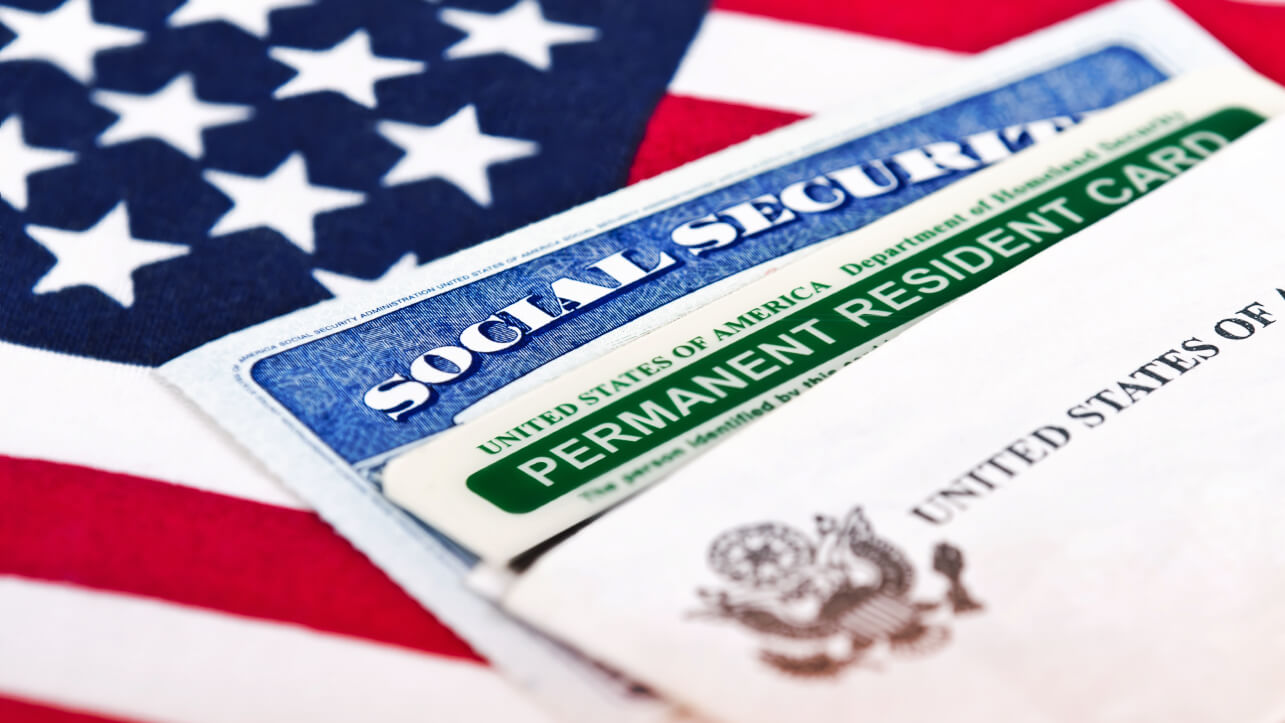How Long Does It Take to Get a Green Card After Marriage?
Securing a green card through marriage is a significant milestone for many couples. However, the process can be complex and time-consuming. This article aims to provide a comprehensive overview of the timeline and factors involved in obtaining a marriage-based green card.
Step-by-Step Process of Getting a Marriage-Based Green Card
1. Form I-130: Petition for Alien Relative
The first step in the process is filing Form I-130 with the United States Citizenship and Immigration Services (USCIS). This form establishes the relationship between the U.S. citizen or permanent resident spouse and the foreign spouse. On average, it takes between 7 to 10 months for USCIS to process Form I-130.
2. Form I-485: Application to Register Permanent Residence or Adjust Status
If the foreign spouse is already in the U.S., they can file Form I-485 simultaneously with Form I-130, or after Form I-130 is approved. This step is known as “adjustment of status.” The processing time for Form I-485 can range from 8 to 14 months, depending on the applicant’s location and USCIS workload.
3. National Visa Center (NVC) Processing
For spouses living abroad, the process involves consular processing through the National Visa Center (NVC). After USCIS approves Form I-130, the case is transferred to the NVC, which takes about 3 to 5 months to process and forward the case to the appropriate U.S. embassy or consulate.
4. Consular Processing
The foreign spouse will attend an interview at the U.S. embassy or consulate in their home country. The timeline for scheduling this interview can vary, but it typically takes another 2 to 4 months after NVC processing.
5. Receiving the Green Card
After a successful interview, the foreign spouse will receive their visa and can travel to the U.S. The green card itself is usually mailed within 2 to 4 weeks after arrival in the U.S.
Factors Influencing the Marriage Green Card Timeline
1. USCIS Backlogs and Processing Times
USCIS processing times can vary significantly based on their current workload and the applicant’s location. Delays can also occur due to the high volume of applications or staffing issues.
2. Completeness and Accuracy of Application
Incomplete or inaccurately filled forms can lead to delays. It’s crucial to ensure all documents are correctly completed and submitted to avoid Requests for Evidence (RFEs) from USCIS.
3. Background Checks and Security Clearances
USCIS conducts background checks and security clearances on all applicants. Any issues discovered during these checks can cause delays.
4. Interview Scheduling
For those undergoing consular processing, the availability of interview appointments at U.S. embassies or consulates can vary. Delays in scheduling can significantly impact the overall timeline.
Common Pitfalls and How to Avoid Them
1. Incomplete Documentation: Ensure all required documents are submitted and filled out correctly. Double-check forms for any missing information.
2. Incorrect Filing Fees: Verify the current filing fees on the USCIS website and make sure to include the correct payment with your application.
3. Delayed Medical Examination: Schedule your medical examination promptly to avoid delays in your application process.
4. Not Responding to RFEs: Respond promptly and thoroughly to any Requests for Evidence (RFEs) from USCIS to avoid further delays.
Financial Considerations
Securing a green card involves various costs. Understanding these can help you plan and budget effectively:
1. Filing Fees: The total cost for filing Form I-130 and Form I-485 can exceed $1,500. Additional fees may apply for biometrics and other services.
2. Attorney Fees: If you hire an immigration attorney, expect to pay between $2,000 and $5,000, depending on the complexity of your case.
3. Medical Examination: Costs for the required medical examination can range from $200 to $500, depending on the provider.
4. Travel Expenses: If consular processing is required, budget for travel expenses to attend the interview at the U.S. embassy or consulate.
Impact of Policy Changes
Immigration policies can change, affecting the green card process:
1. Recent Changes: Stay updated on the latest immigration policies. For example, changes in public charge rules can impact green card eligibility.
2. Future Predictions: Experts predict potential changes in immigration policies due to political shifts. Stay informed to understand how these changes might affect your application.
Checklist for Marriage-Based Green Card Application
1. Gather Required Documents:
– Birth certificates
– Marriage certificate
– Proof of U.S. citizenship or permanent residency of the sponsoring spouse
– Passport-sized photos
– Evidence of bona fide marriage (e.g., joint bank accounts, lease agreements)
2. Complete and File Forms:
– Form I-130
– Form I-485 (if adjusting status)
– Form I-864 (Affidavit of Support)
– Form I-693 (Report of Medical Examination and Vaccination Record)
– Form G-325A (Biographic Information)
3. Pay Filing Fees:
– Confirm the total amount and prepare a check or money order payable to the U.S. Department of Homeland Security.
4. Attend Biometrics Appointment:
– USCIS will schedule an appointment for fingerprinting and taking photographs.
5. Prepare for the Interview:
– Gather all original documents and copies.
– Practice common interview questions with your spouse.
Conclusion
While the timeline for obtaining a marriage-based green card can range from 10 months to over 2 years, understanding the steps and factors involved can help applicants better navigate the process. Staying informed and prepared, and possibly consulting with an immigration attorney, can significantly impact the efficiency and success of your green card application.
For personalized advice and the most current processing times, always refer to the official USCIS website or consult with a legal expert.
The information provided on this website does not, and is not intended to, constitute legal advice; instead, all information, content, and materials available on this site are for general informational purposes only. Information on this website may not constitute the most up-to-date legal or other information. This website contains links to other third-party websites. Such links are only for the convenience of the reader, user, or browser; the writer does not recommend or endorse the contents of the third-party sites.
Readers of this website should contact a licensed attorney to obtain advice with respect to any particular legal matter.



